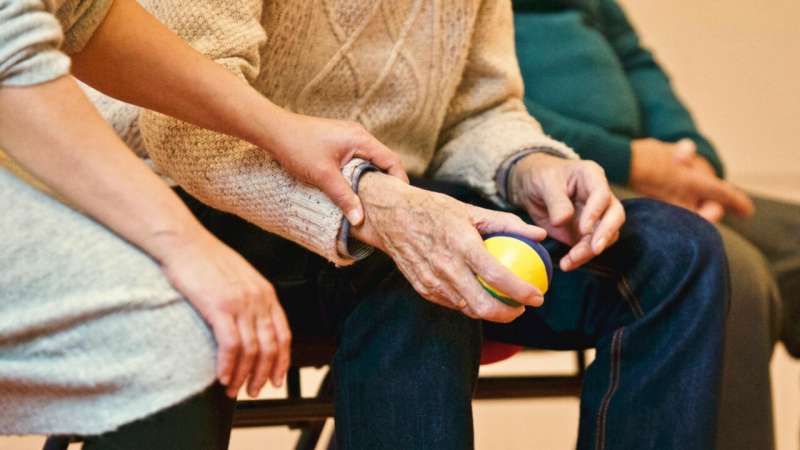This article has been reviewed according to Science X's editorial process and policies. Editors have highlighted the following attributes while ensuring the content's credibility:
fact-checked
trusted source
proofread
Informal caregiving for seniors in Singapore valued at S$1.28 billion annually

The monetary value of the substantial time that informal caregivers in Singapore spend looking after seniors aged 75 years and above, comes up to around S$1.28 billion annually—equivalent to about 11% of the government's expenditure on health care. This is according to a Duke-NUS Medical School study, which is the first to estimate the monetary value of informal caregiving in the context of seniors requiring day-to-day care locally, providing insights for policies to better support caregivers.
The paper is published in the journal Aging and Health Research.
Singapore is rapidly aging—the proportion of residents aged 65 years and above has increased from 7.2% in 2000 to 16% in 2021. By 2030, around one in four citizens, or 23.8%, will be aged 65 and above. The role of informal caregivers will become even more critical.
Despite the significant time commitment, the monetary value of informal caregiving is often overlooked in eldercare cost estimates, with most studies focusing on direct health care costs only.
To address this, the researchers collected data in the first wave of the "Caregiving Transitions among Family Caregivers of Elderly Singaporeans" (TraCE) study conducted from 2019 to 2020. It surveyed 278 pairs of primary or main informal caregivers and senior care recipients.
Primary informal caregivers were defined as family members or friends aged 21 and older who provide unpaid help to seniors for at least two out of three types of caregiving tasks: (i) providing care directly; (ii) ensuring provision of care, for example, by supervising a migrant domestic worker; and (iii) making care and treatment decisions.
For the study, these primary informal caregivers reported the time spent by themselves, as well as by secondary informal caregivers, i.e., other family members and friends, in caring for the senior care recipient.
From the data, the researchers found that primary informal caregivers provided on average 33 hours of care each week. Most of the time was spent on activities such as helping the care recipient communicate with others, managing the needs of the care recipient, and providing emotional support.
By calculating the value of this time in terms of the hourly salary of a market-based substitute person who would provide direct care to care recipients (a full-time health care assistant or other personal care workers), the study concluded that the time spent by primary informal caregivers in providing care to senior care recipients amounted to S$15,959 a year. For secondary caregivers, the mean caregiving time was 8.4 hours per week, totaling up to S$4,062 a year.
Nur Diyana Azman, Senior Research Assistant at Duke-NUS' Center for Aging Research & Education (CARE) and the first author of the study, said, "Although secondary informal caregivers contributed fewer hours compared with the primary caregivers, our findings show that their presence reduced primary informal caregiving hours. This makes a strong point for sharing responsibilities to reduce the time spent by primary caregivers and potentially alleviating caregiver burden."
Given the important role played by migrant domestic workers in providing care to seniors in Singapore, the study also looked at their caregiving duties.
The study found that migrant domestic workers spent about 42 hours a week looking after senior care recipients. They provided the most help with activities of daily living, such as walking, bathing, dressing, and feeding, highlighting their significant responsibility for providing everyday care that is physical in nature.
In total, the study found that senior care recipients received on average 60.5 hours of care a week.
The study also mapped out the characteristics of caregivers and those they were caring for. It found that care recipients were around 85 years old. Most of them were female (67%), widowed (55%) and had no formal education (55%). Many needed help with at least one activity of daily living. The majority (70%) was not diagnosed with dementia.
Primary informal caregivers were around 61 years old and, on average, had been caring for their care recipients for about 10 years. Most of them were the care recipient's child or child in-law (73%), female (73.4%), had secondary or higher education (68.7 percent), and lived in the same household as their care recipient (86.3%). Nearly a third (30.9%) had never married.
Associate Professor Rahul Malhotra, Deputy Director of Duke-NUS' CARE and Principal Investigator of the TraCE study, said, "By mapping out the contributors to the informal caregiving landscape, efforts can be made to improve the care options for our seniors. In addition, our estimates on the monetary value of informal caregiving time can inform economic evaluations of care models for seniors and policies for supporting caregivers, particularly in societies like Singapore that rely heavily on informal care."
Professor Patrick Tan, Senior Vice-Dean for Research at Duke-NUS, said, "It is important to acknowledge that without informal caregivers, formal care services would face a significantly higher burden of care, straining social services and health care budgets. We hope that more efforts can be made to encourage and empower informal caregivers with practical tools and supportive communities so that no caregiver is alone."
Duke-NUS is committed to improving patient care through pioneering biomedical and health services and systems research. This study's insights will help pave the way for a more resilient and future-ready health care system that empowers people to lead healthier lives longer.
More information: Nur Diyana Binte Azman et al, Informal caregiving time and its monetary value in the context of older adults in Singapore, Aging and Health Research (2024). DOI: 10.1016/j.ahr.2024.100193




















